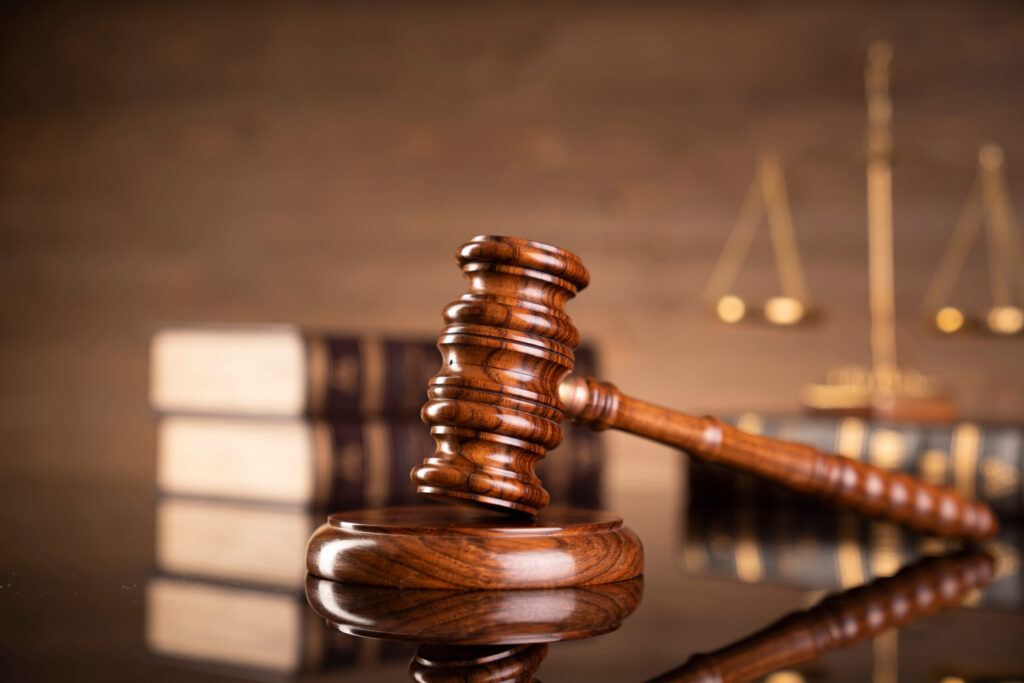On March 2025, the Karnataka High Court, under Justice M. Nagaprasanna, ruled that an accused cannot be compelled to seek case-related documents through the RTI Act when filing an application under Section 91 CrPC. The judgment came in response to a plea by Dr. Shivamurthy Muruga Sharanaru, who sought access to specific documents crucial to his defence in an ongoing criminal case. The court emphasized that the Criminal Procedure Code (CrPC) provides a clear legal mechanism for summoning documents, and the RTI Act cannot be used as a substitute in criminal trials.
The case arose when the trial court denied Dr. Sharanaru’s request under Section 91 CrPC, directing him to obtain the required records via the Right to Information (RTI) Act. This decision was backed by the prosecution, arguing that RTI serves as an alternative means to access public documents. Disagreeing with this approach, Dr. Sharanaru challenged the order before the Karnataka High Court.
In its verdict, the High Court clarified that Section 91 CrPC is a distinct legal provision designed to facilitate fair trials by allowing the accused to summon necessary documents. It ruled that forcing an accused to rely on RTI undermines the due process guaranteed under criminal law. Consequently, the court set aside the trial court’s decision and directed the prosecution to provide the requested documents at the appropriate stage of the trial.
This ruling reaffirms the accused’s rights and ensures that criminal proceedings remain governed by the CrPC, rather than being shifted to an alternative bureaucratic process like RTI. It sets a precedent for future cases where access to evidence is crucial for ensuring justice. This blog discusses the Karnataka High Court’s ruling on an accused’s right to obtain case documents under Section 91 CrPC instead of the RTI Act, highlighting its legal impact.
Read Also: Supreme Court Upholds Right to Speedy Trial
Background of the Case under Section 91 CrPC
In 2022, Dr. Shivamurthy Murugha Sharanaru, the head of Sri Jagadguru Murugharajendra Bruhanmutt in Chitradurga, Karnataka, was accused of sexually assaulting two minor girls who were staying at the Mutt’s hostel and student of 5th and 7th standard. Following these allegations, a case was registered against him under the under multiple provisions, including Sections 376(c), 376(2)(n), 376(AB), 376(3), 366, 366(A), 323, and 114 read with Section 34 of the Indian Penal Code (IPC), 1860. Additionally, charges were framed under Sections 5(L), 6, 7, and 17 of the Protection of Children from Sexual Offences Act, 2012 (POCSO Act), Sections 3(f) and 7 of the Religious Institutions (Prevention of Misuse) Act, 1988, and Sections 75 and 77 of the Juvenile Justice (Care and Protection of Children) Act, 2015. The petitioner approached the High Court after the trial court, through its order dated April 20, 2023, refused his request under Section 207 of the Criminal Procedure Code (CrPC), 1973, which mandates providing copies of police reports and related documents to the accused.
During the investigation, Dr. Sharanaru submitted an application under Section 91 of the Criminal Procedure Code (CrPC), requesting specific documents from Cottonpet Police Station in Bengaluru. He sought access to records such as station house diaries, duty rosters, patrolling logs, and financial transaction details, arguing that these were essential for his defence.
The trial court denied this application, suggesting that Dr. Sharanaru could obtain the documents through the Right to Information (RTI) Act. Challenging this decision, he approached the Karnataka High Court, arguing that Section 91 CrPC provides a statutory mechanism for summoning documents necessary for a fair trial, and that directing him to use the RTI Act was inappropriate.
The High Court on 11 March 2024, presided over by Justice M. Nagaprasanna, ruled in favour of Dr. Sharanaru, emphasizing that an accused cannot be compelled to seek case-related documents via the RTI Act when Section 91 CrPC is applicable. The court highlighted that Section 91 CrPC serves as a distinct legal provision enabling courts to summon documents essential for adjudication, separate from the RTI framework designed for public access to information.
Read Also: SC Grants Divorce Citing Failed Marriage
Right to Information (RTI) Act and Its Role in Section 91 CrPC
The Right to Information (RTI) Act, 2005 is a law enacted by the Government of India to promote transparency and accountability in public institutions. It allows citizens to seek information from government bodies, ensuring that administrative decisions remain open to public scrutiny.
RTI Act in the Present Case
In the case of Shivamurthy Murugha Sharanaru v. State of Karnataka, the trial court denied the accused’s request under Section 91 of the Criminal Procedure Code (CrPC) and instead directed him to obtain the required case documents through the RTI Act. This raised a significant legal question—whether an accused in a criminal trial can be compelled to use the RTI route instead of directly seeking documents through the CrPC provisions.
The Karnataka High Court ruled against this directive, emphasizing that:
- RTI and CrPC serve different purposes that RTI Act is meant for public access to information, while Section 91 CrPC is a statutory right of an accused to obtain documents essential for their defence.
- Forcing an accused to rely on the RTI Act instead of CrPC provisions is legally incorrect and violates the right to a fair trial.
- The prosecution must provide necessary case documents under CrPC, and the accused cannot be asked to go through a bureaucratic RTI process for obtaining records relevant to their defence.
This case reaffirmed that criminal trials must follow due process, and accused persons should not face procedural obstacles in accessing case-related documents.
Read Also: Husband Jailed for Ignoring Maintenance Order
High Court’s Observations and Reasoning
In the case of Dr. Shivamurthy Murugha Sharanaru v. State of Karnataka, the Karnataka High Court made several key observations regarding the application of Section 91 of the Criminal Procedure Code (CrPC) and the Right to Information (RTI) Act:
- Improper Application of RTI Act: The Court criticized the trial court’s directive for the accused to utilize the RTI Act to obtain documents and Justice M. Nagaprasanna stating that, “The rejection of which is on the face of it illegal as that is not the purport of Section 91 of the Cr.P.C. that an accused should be driven for securing documents under the Right to Information Act when an application is filed under Section 91 of Cr.P.C.”
- Clarification on Section 91 CrPC: The High Court emphasized that Section 91 CrPC is specifically designed to allow the accused to request relevant documents directly from the prosecution, without resorting to alternative procedures like the RTI Act. The prosecution must provide relevant records under CrPC, and the accused should not be forced into a bureaucratic process like RTI.
- Directive to Prosecution: Consequently, the Court set aside the trial court’s order and directed the prosecution to furnish the requested documents at the appropriate stage of the trial.
These observations underscore the Court’s commitment to ensuring that the accused’s rights are upheld within the framework of criminal proceedings, without unnecessary procedural hurdles.
Read Also: Domestic Violence: SC Ruling on Court Appearance
Supreme Court’s Observations and Reasoning in Section 91 CrPC
- Different Legal Purposes: The Supreme Court of India has clarified that Section 91 CrPC and the RTI Act serve distinct functions. Section 91 CrPC allows courts and police officers to summon documents needed for investigations and trials, whereas the RTI Act is designed to promote transparency by granting public access to government records.
- Use of Section 91 CrPC at Trial Stages: In State of Orissa vs. Debendra Nath Padhi (2005), the Court ruled that an accused cannot invoke Section 91 CrPC at the stage of framing charges to obtain documents in possession of the prosecution. The right to request documents typically becomes relevant during the defense stage, not at the beginning of the trial.
- Balancing Public Interest and Disclosure: The Supreme Court has also stated that information can be disclosed under the RTI Act if the public interest in disclosure outweighs potential harm. In a 2019 case, the Court ruled that authorities cannot deny documents under the RTI Act solely on national security grounds if withholding them causes greater harm than making them public.
- Clarifying Legal Boundaries: The Supreme Court has consistently reinforced that Section 91 CrPC should be used within criminal proceedings, while the RTI Act should not be treated as an alternative for obtaining case documents in a criminal trial. This distinction ensures that legal procedures remain fair and function as intended.
Karnataka High Court’s Ruling and Its Significance
- In Dr. Shivamurthy Murugha Sharanaru v. State of Karnataka, the Karnataka High Court ruled that an accused cannot be forced to obtain documents through RTI when they have the legal right under Section 91 CrPC.
- The judgment reinforces the procedural rights of an accused in criminal trials and prevents unnecessary bureaucratic hurdles.
Impact of the Karnataka High Court’s Judgment
- Strengthens the right to a fair trial by ensuring that an accused can access case-related documents through CrPC provisions.
- Distinguishes between RTI and CrPC, ensuring that criminal trials follow proper legal mechanisms rather than public information laws.
- Although the Supreme Court has not ruled on this exact issue, the Karnataka High Court’s decision sets a strong legal precedent within its jurisdiction.
Final Thoughts
The Karnataka High Court, through Justice M. Nagaprasanna, firmly ruled that compelling an accused to obtain case-related documents via the RTI Act instead of Section 91 CrPC is legally unjustified. The court emphasized that Section 91 CrPC is meant to provide access to crucial documents for a fair trial, and directing the accused to rely on RTI undermines the very purpose of the provision. This ruling underscore the importance of procedural fairness, ensuring that an accused has the right to access relevant documents without unnecessary legal obstacles.
Read Also: False Promise of Marriage: Bombay HC Upholds Conviction




